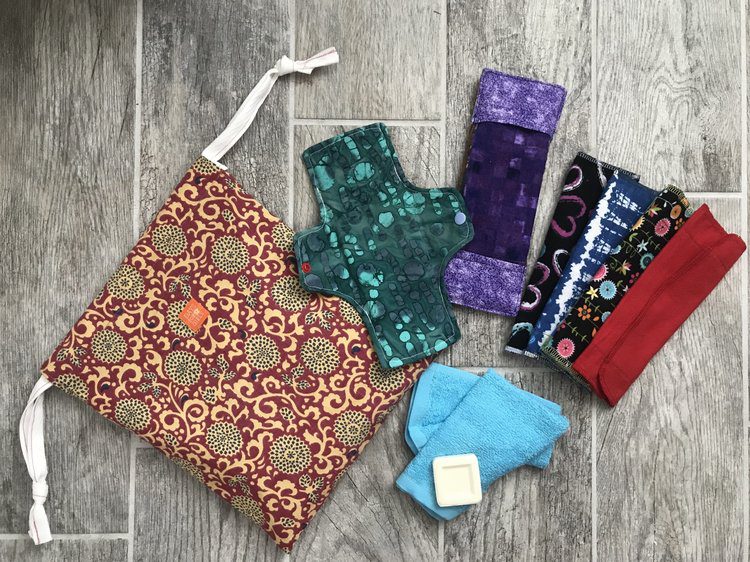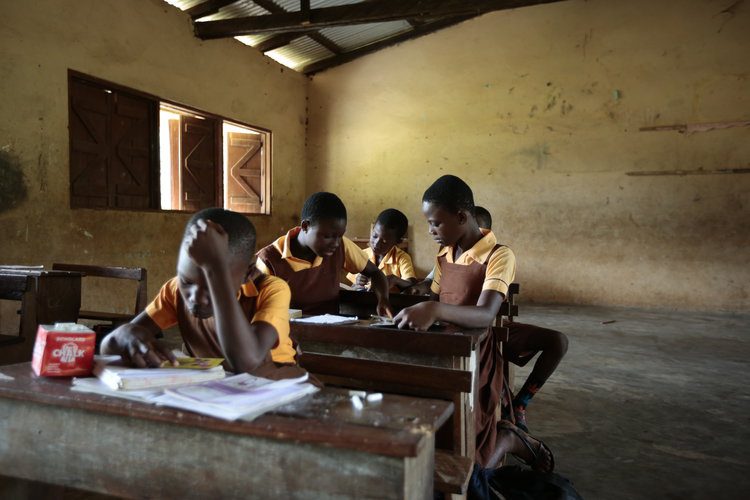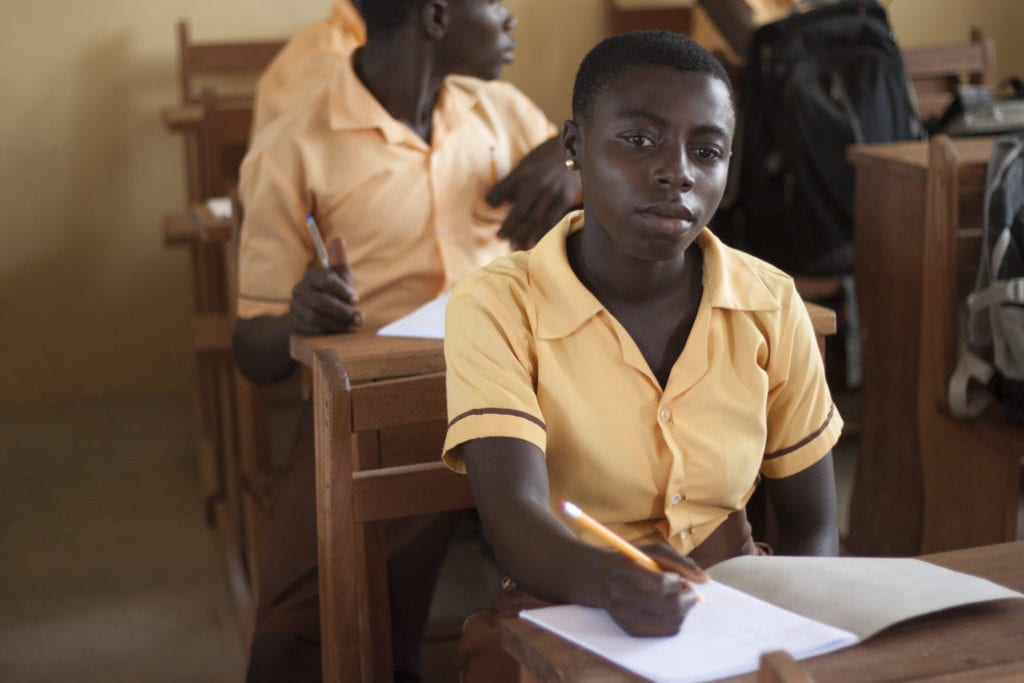Reusable menstruation kits keep girls healthy and in school. Education and training provided with these kits fights stigmas.
In 2014, Sustainable Development Focus, an NGO, found that 95% of rural Ghanaian school girls miss school for an entire week each month because they have no way to manage their menstruation. Nearly a quarter of their education is missing because they lack basic supplies for menstrual management and hygiene.
Empower Playgrounds partners with two organizations, Days for Girls (a global organization) and Sankofa (a local Ghanaian organization). Each kit contain reusable pads, soap, wash clothes, panties, absorbent liners, a drawstring bag or zippered pouch, and plastic zip bags for washing used pads.

Each kit is delivered with a Unicef education pamphlet specifically made for girls in Ghana. Training is provided to the girls, their parents, as well as the teachers. The training material expands upon basic Ghanaian health curriculum and includes practical information on menstruation, health, and hygiene.

LET’S CLARIFY: HOW THIS HELPS
Missing one week of school each month doesn’t just mean that a girl is learning 25% less than her peers, it also means that when she returns she also must teach herself both the missed material as well as the current week’s material. The menstruation kits provide girls with the resources they need to stay in school so they can graduate in a timely manner.
Poor menstrual hygiene increases girls risk for reproductive tract infection (RTIs). Such infections can lead girls to miss school and can potentially be life threatening when not identified or ignored. The menstruation kits provides the clean and sanitary solution needed to prevent RTIs. The training and included pamphlet covers RTI prevention and even how to identify when an infection is occurring so girls and families can seek help early on.
Many cultures in rural Ghana have myths surrounding menstruation that stigmatize girls on their periods. Empower Playgrounds requests that parents and teachers also be present at the training. Educating a community on the science behind menstruation and menstrual health fights such stigmas that prevent girls from participating fully in every day tasks.

